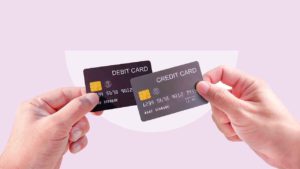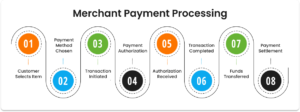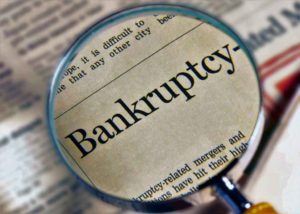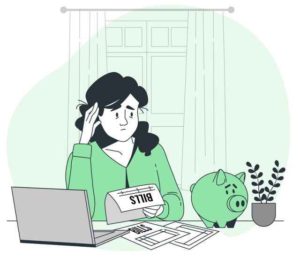There are a number of key distinctions between a personal loan and a credit card. These debts are different from the likes of car loans, student loans, and mortgage payments. There are some personal loan companies that place limits on your ability to spend the money they lend you. If you need money for things like tuition, taxes, or living expenses, you may have trouble getting a personal loan for specific expenses through those lenders.
Both secured and unsecured forms of personal loans exist. Secured loans always need some kind of collateral to be approved for financing. Certificates of deposit are examples of financial assets that may be used to arrange financing for a personal loan. Private loans are available from a wide variety of lenders that may accept borrowers with little requirements.
You need to apply to a lender if you want to get a personal loan. You may utilize a traditional bank, a local credit union, or even a private lending company you find online. Typically, it would begin with submitting an application. The lender looks it through and decides whether or not to approve it. If approved, you’ll be presented with loan terms (https://economictimes.indiatimes.com/definition/loan) and given the option to accept them.
If you decide to proceed with the loan, the following step is to fill out the necessary paperwork. A lender will then finance the loan, resulting in disbursement of the loan proceeds to you. It is usually the lender’s preference as to whether they should be sent through check or electronic deposit into your bank account. If you are unable to make the payments on a personal loan, it might have a devastating effect on your credit score. If you default on a secured loan, your lender may try to seize your collateral or file criminal charges to get their money back.
Take, for instance, a personal loan.
A personal loan may be a good financial option, but only if you go into it with your eyes wide open. The annual percentage rate (APR) of a personal loan is the yearly cost of carrying the debt. This is calculated by multiplying the interest rate by the total amount borrowed. With the APR and loan term, you can approximate the total interest you’ll pay. If you need help figuring out what your monthly payment should be and how much interest you should pay on your personal loan, you may use a simple online calculator to do it.
There are a few lenders who won’t charge you anything extra for your personal loan, but others that will make you pay for things like a credit report or loan origination or even hit you with a fee if you pay it off early. If your payment is received after the due date, a late fee may be assessed.
What You Should Do If You Need a Personal Loan
Your personal banker can advise you on the range of personal loan options and the likelihood of approval for each. Online, you may also apply for a personal loan. With the advent of internet lending platforms, borrowers now have the ability to apply for forbrukslån uten sikkerhet from the comfort of their own home, get instantaneous decisions, and have their monies deposited into their account within 24 to 48 hours. When evaluating personal loans, online or in person, it’s important to focus on the finer points. Please think about the following cases:
- Interest rate
- Fees
- Repayment Schedule
- Curbs on borrowing (minimum and maximum)
A free copy of your credit report may be seen by you each year at AnnualCreditReport.com. Pay attention to any mistakes that might be lowering your score and don’t be hesitant to dispute them. Investigating the requirements for getting a private loan is another serious thought you should have. Lenders’ requirements for what constitutes a good credit score, how much income is required, and what debt-to-income ratio is reasonable in order to approve a personal loan might vary widely. Given your current financial and credit standing, this might help you narrow down your options for a suitable loan.
Borrowing money always carries the risk of lowering your credit score, but a well-managed personal loan might actually raise your score. When opting to apply for a personal loan, it is important to evaluate your current credit standing and how it can change if you apply for one.
In what ways does my credit score reflect my financial history?
Your credit score is one of the primary factors that lenders assess when deciding whether or not to grant you a loan. When determining whether or not you are creditworthy, the single most essential factor is your credit score and how reliably you have been repaying loans in the past.
Credit scores range from 300 to 850 and are based on a number of factors. Opportunities will increase as your score rises.
Can Credit Be Established With a Personal Loan?
Correctly managing a personal loan may have long-term positive effects on your credit. These are just a few of the ways in which a loan might improve your life. Consolidating debt might help you save money. Personal loans may boost your credit score, which may surprise you. Click here to learn more about credit scores. To begin, you may look into consolidating your debt at a lower interest rate than what you’re now paying.
You have a unique kind of debt.
Did you know that diversifying the types of your owed money will improve your credit score? Individual loans are often repaid over a period of time. Credit card interest rates might rise and payment schedules can become unpredictable. We call this kind of debt “revolving credit.”
It’s up to you to start a record of all the times you’ve paid.
Consistently paying your payments on time is one of the best ways to raise your credit rating. Consistently paying back your personal loan can help you build a solid credit history. As a result of your hard work, your credit utilization ratio has decreased. The ratio of your outstanding debt to your available credit is your credit utilization rate. Taking out a personal loan to pay off credit cards might reduce your credit utilization ratio since it reduces your revolving debt.
What Effect Do Personal Loans Have on Your Credit Score?
To a lesser extent, getting a loan will have a negative impact on your credit score at first, and that might decrease further if you don’t pay it back on time. Personal loan applications nearly always result in a thorough credit check from prospective creditors. Nonetheless, your credit score will drop somewhat due to a hard investigation as opposed to a soft query. Nonetheless, this decline ought to endure for no more than a couple of months at most. You want to ensure you don’t get behind on payments.
One of the wisest moves you can make with your money would be to take out a personal loan if you know what you’re doing. Nonetheless, you should exercise extreme care when dealing with personal loans. You get money from a lender and may use it toward anything you choose. Your obligation is to put the money to good use and pay it back on schedule. If you are late with payments, it might have a negative effect on your credit rating.
Can I Benefit from Getting a Private Loan?
It’s possible that you might suddenly incur expenses like car maintenance or medical expenditures. Instead of charging these kinds of costs to a high-interest credit card, a personal loan may help you cover them. In spite of the risks, a personal loan could be the best way to get the money you need to get your financial house in order.





Be First to Comment